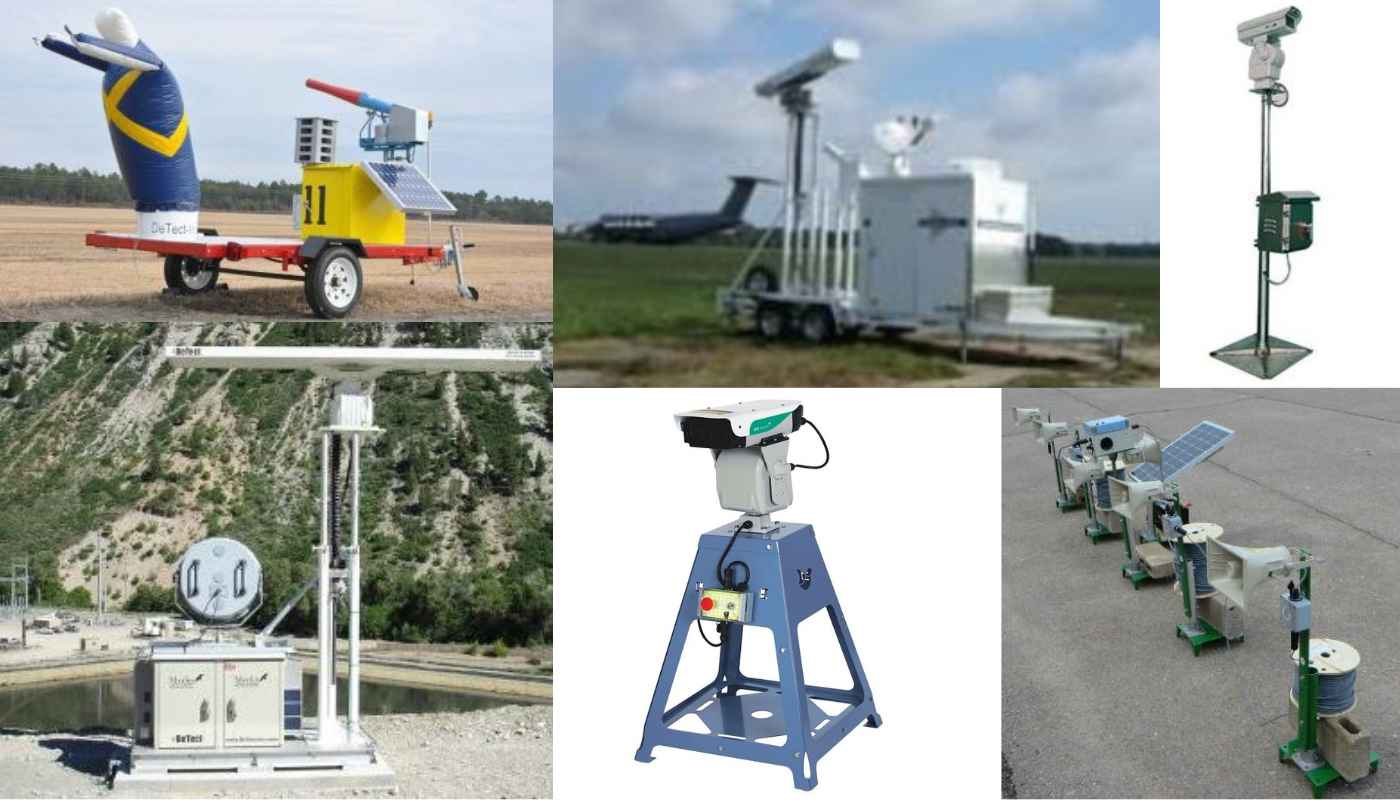Bird Control Systems and Acoustic Bird Scarer in China in 2024
China’s skies are becoming increasingly busy, not just with airplanes, but also with a feathered foe: birds. Bird strikes, collisions between birds and aircraft, are a serious threat to aviation safety, costing millions of dollars in damages and posing a potential risk to human life. To combat this avian menace, China is at the forefront of developing innovative bird control systems, and acoustic bird scarers are emerging as a popular, humane solution.

The Threat From Above Bird Strikes
Bird strikes are a global concern, but China, with its booming aviation industry and diverse birdlife, faces a unique challenge. Here’s a closer look at the factors contributing to bird strikes in China:
- Habitat Loss: Rapid urbanization and agricultural expansion are shrinking natural bird habitats, forcing birds closer to airports in search of food and nesting grounds.
- Increased Air Traffic: China’s flourishing aviation sector translates to more flights, increasing the probability of encountering birds in flight paths.
- Bird Migration Routes: Many migratory bird species traverse China’s airspace, creating periods of heightened risk for bird strikes.
The consequences of bird strikes can be devastating. A large bird strike can cause significant damage to an aircraft, potentially compromising its flight controls or engines. In the worst-case scenario, a bird strike can lead to a plane crash, endangering the lives of passengers and crew.
Bird Control Solutions in China
China is actively implementing various bird control strategies to mitigate the risk of bird strikes. Here’s an overview of some of the most common methods:
- Airport Wildlife Management: Wildlife biologists work with airports to identify and understand bird populations around the airfield. This knowledge helps develop targeted bird control strategies.
- Habitat Modification: Airports may modify their surrounding landscapes to make them less attractive to birds. This can involve removing vegetation that provides food or cover for birds, or creating nesting deterrents.
- Avian Radar Tracking: Bird radar tracking systems use sophisticated technology to detect and track flocks of birds near airports. This real-time information allows airport staff to take proactive measures to disperse the birds.
- Flock Dispersal Techniques: Water cannons and pyrotechnics are used to create loud noises and startling visuals to frighten birds away from runways and flight paths.
These traditional methods are effective but can have limitations. Water cannons can be resource-intensive, and pyrotechnics can create noise pollution. This is where acoustic bird scarers come in, offering a more targeted and environmentally friendly solution.
Acoustic Bird Scarers Take Center Stage
Acoustic bird scarers are electronic devices that emit sounds designed to deter birds from specific areas. These sounds can include distress calls of predator birds, such as hawks or falcons, or loud, unfamiliar noises that startle birds and encourage them to move away.
Acoustic bird scarers in China are gaining popularity for several reasons:
- Effectiveness: Acoustic bird scarers can be highly effective in deterring a wide range of bird species. The sounds they emit can be programmed to change frequently, preventing birds from habituating to the noise.
- Humaneness: Unlike some traditional methods, acoustic bird scarers are humane. The sounds they emit are not harmful to birds, only disruptive.
- Environmental Friendliness: Acoustic bird scarers are a non-polluting solution. They don’t require harmful chemicals or generate excessive noise pollution.
- Ease of Use: Acoustic bird scarers are relatively easy to install and operate. Many models are solar-powered, making them a sustainable option.
When choosing acoustic bird scarers
- Area Coverage: Choose a device with a coverage area that suits your needs.
- Sound Library: Opt for a scarer with a diverse library of sounds to prevent birds from becoming accustomed to a single noise.
- Customization: Some scarers allow you to adjust the volume and frequency of the sounds emitted.
- Power Source: Solar-powered models offer a convenient and environmentally friendly option.
FAQs
What are the biggest challenges China faces with bird strikes?
In China, a combination of factors like habitat loss due to development, high air traffic volume, and migratory bird routes contribute to frequent encounters between birds and airplanes. This can lead to costly damage and safety risks.
What are some common bird control methods used at Chinese airports?
Chinese airports employ various strategies like wildlife management plans, habitat modification to make the area less attractive to birds, and avian radar tracking to detect flocks. Additionally, they use deterrents like water cannons and pyrotechnics to scare birds away from runways.
Why are acoustic bird scarers gaining popularity in China?
Acoustic bird scarers in China are popular because they offer a humane, environmentally friendly, and effective way to deter birds. These devices emit sounds like predator calls or loud noises to keep birds away from airports without harming them.





